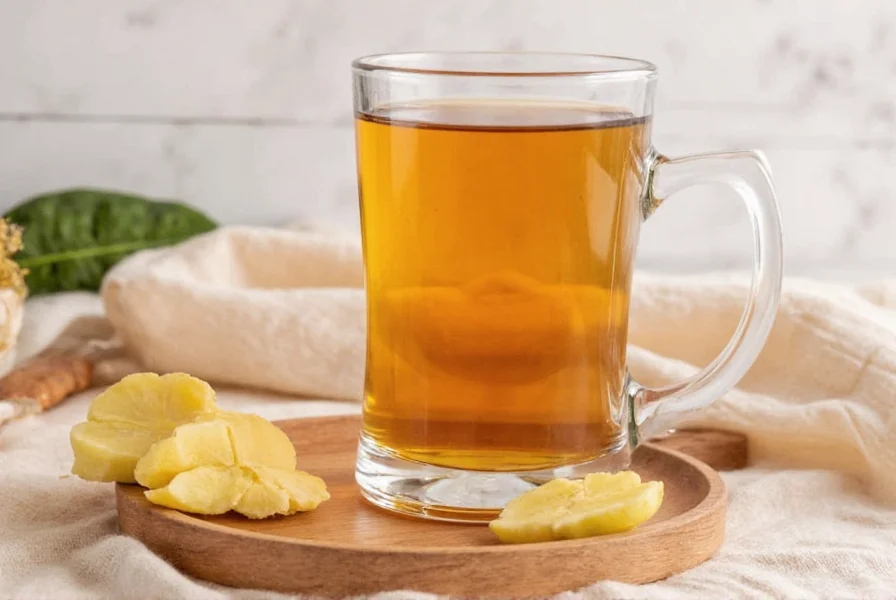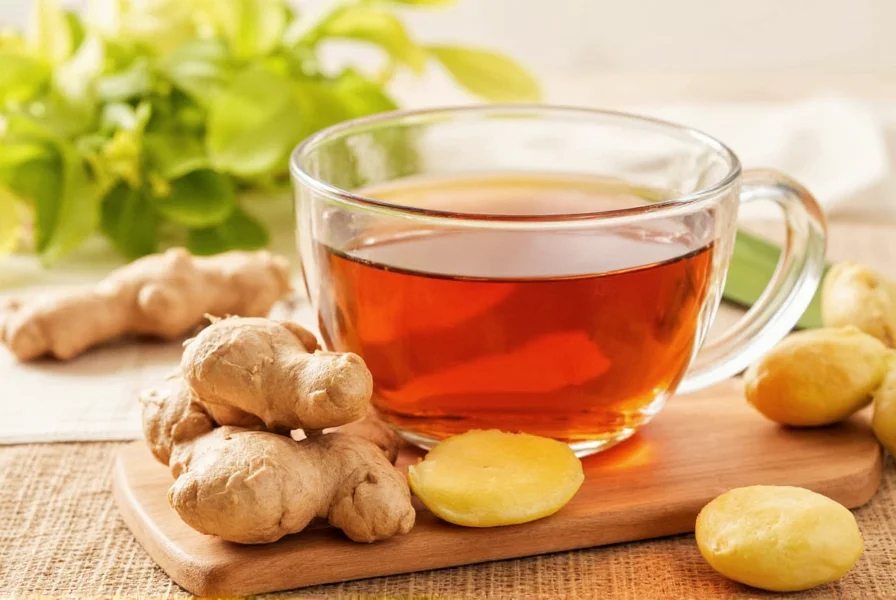For millions dealing with gastroesophageal reflux disease (GERD), finding natural symptom relief becomes a priority alongside medical treatment. Ginger tea frequently emerges in discussions about home remedies for digestive issues, but its relationship with GERD requires careful examination. Understanding whether this popular herbal infusion helps or hinders acid reflux management demands evidence-based analysis rather than anecdotal claims.
The Science Behind Ginger and Digestive Health
Ginger (Zingiber officinale) contains bioactive compounds like gingerols and shogaols that influence gastrointestinal function. Research published in the Journal of Gastroenterology and Hepatology indicates ginger may stimulate gastric motility, potentially reducing the time stomach contents remain in contact with the lower esophageal sphincter—a key factor in GERD symptom development.
A 2020 systematic review in Nutrients examined ginger's effects on gastrointestinal disorders, noting its antiemetic properties could benefit those experiencing nausea alongside acid reflux. However, the review emphasized limited direct evidence specifically for GERD management, highlighting the need for personalized approaches when considering ginger tea for acid reflux relief.
How Ginger Tea Might Help GERD Symptoms
Certain mechanisms suggest potential benefits for some GERD patients:
- Accelerated gastric emptying: Ginger may reduce delayed gastric emptying, a common GERD contributor
- Anti-inflammatory effects: Compounds in ginger might reduce esophageal inflammation from acid exposure
- Nausea reduction: Particularly helpful for GERD patients experiencing reflux-induced nausea
- Antioxidant properties: May protect esophageal tissue from oxidative stress
A clinical trial involving 150 participants with functional dyspepsia (closely related to GERD) found those consuming ginger extract experienced significantly improved gastric motility compared to placebo. While not exclusively studying GERD, these findings suggest ginger's digestive benefits might extend to some reflux sufferers.
| Potential Benefits | Potential Concerns |
|---|---|
| May accelerate gastric emptying | Hot temperatures can relax LES |
| Anti-inflammatory properties | High concentrations may irritate esophagus |
| Reduces nausea frequency | Possible interaction with blood thinners |
| Natural alternative to pharmaceuticals | May worsen symptoms in severe esophagitis |
When Ginger Tea Might Worsen GERD Symptoms
Despite potential benefits, ginger tea can trigger reflux in certain situations:
The temperature of ginger tea significantly impacts its effect on GERD. Consuming beverages above 140°F (60°C) can relax the lower esophageal sphincter (LES), allowing stomach acid to flow backward. Many traditional ginger tea preparations use boiling water, creating a potential reflux trigger regardless of ginger's properties.
Individual sensitivity varies considerably. A 2022 study in Digestive Diseases and Sciences reported that approximately 30% of GERD patients experienced symptom exacerbation after consuming ginger products, particularly those with erosive esophagitis. The study suggested ginger's mild irritant properties might aggravate already inflamed esophageal tissue in susceptible individuals.

Optimizing Ginger Tea Consumption for GERD Management
For those wishing to try ginger tea with GERD, evidence-based preparation methods can maximize potential benefits while minimizing risks:
- Temperature control: Allow tea to cool to 100-120°F (38-49°C) before drinking—warm rather than hot
- Concentration: Use 1/2 to 1 teaspoon of grated ginger per cup rather than stronger preparations
- Timing: Consume between meals rather than with food to avoid increasing stomach volume
- Monitoring: Keep a symptom diary for 2 weeks to assess individual response
- Combination approach: Pair with other evidence-based GERD lifestyle modifications
Research from the American College of Gastroenterology suggests combining ginger tea with other dietary modifications—such as avoiding late-night eating and reducing portion sizes—creates a more effective natural management strategy than any single intervention alone. This holistic approach to natural GERD remedies aligns with current clinical recommendations for comprehensive symptom management.
Comparing Ginger Tea to Other Natural GERD Remedies
When evaluating ginger tea for acid reflux relief, consider how it compares to other commonly suggested natural remedies:
Aloe vera juice shows promise for reducing esophageal inflammation but lacks extensive research. Slippery elm forms a protective coating but may interfere with medication absorption. Chamomile tea offers gentler anti-inflammatory effects but with less impact on gastric motility than ginger. Each natural remedy for GERD presents unique benefits and limitations, making personalized selection crucial.

When to Consult a Healthcare Provider
While ginger tea represents a potential complementary approach, certain situations require professional medical guidance:
- Persistent symptoms despite lifestyle modifications
- Difficulty swallowing or painful swallowing
- Unintended weight loss
- Use of prescription GERD medications
- History of Barrett's esophagus or esophageal strictures
Healthcare providers can help determine whether ginger tea fits within an individual's comprehensive GERD treatment plan, particularly when considering potential interactions with proton pump inhibitors or other medications. Board-certified gastroenterologists emphasize that natural remedies should complement—not replace—evidence-based medical treatments for moderate to severe GERD.










 浙公网安备
33010002000092号
浙公网安备
33010002000092号 浙B2-20120091-4
浙B2-20120091-4